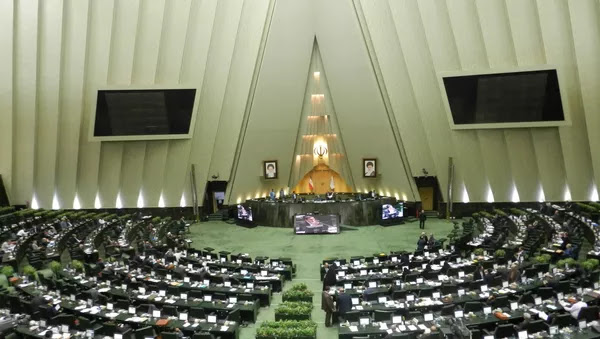October 8, 2007
In a recent move, two Iranian parliamentarians, Akbar Alami, the representative of Tabriz, and Rasoul Sadeghi Benabi, the representative of Bonab, filed a formal complaint to the Constitutional Oversight Committee (Commission of Article 90) against the Security Council of Tabriz. The complaint addresses the Council's decision to restrict the use of the Turkish language in businesses, arguing that such restrictions violate the rights of Azerbaijanis in Iran, particularly the constitutional right to use regional languages.
The lawmakers argue that the decision by the Tabriz Security Council contradicts Article 15 of Iran’s Constitution, which allows for the use of regional and ethnic languages in media and education, alongside the official Persian language. The representatives have called for the immediate annulment of the Security Council’s directive, which they claim is both unconstitutional and discriminatory.
The Controversial Decision
The issue stems from a decree issued by the Tabriz Security Council on July 20, 2007, which prohibited shop owners and businesses in the East Azerbaijan province from using Turkish on signs and product labels. The directive, endorsed by the Tabriz governor, was intended to curb the use of the local language in commercial settings, but it was met with immediate opposition from the representatives of Azerbaijan.
In their complaint, Alami and Sadeghi Benabi highlighted the Islamic respect for ethnic and linguistic diversity, citing the Quran, which acknowledges the differences in languages and ethnicities as divine signs (Surah Ar-Rum, verse 22). They also emphasized that Iran's Constitution guarantees the free use of regional languages, specifically stating that such languages may be used in media and education alongside Persian. The lawmakers criticized the Security Council for implementing an unlawful decision, claiming that it not only violates national law but also undermines the cultural identity and linguistic rights of Azerbaijani Turks.
Legal Concerns and Demands for Action
The complaint, addressed to the head of the Constitutional Oversight Committee, further cites multiple legal frameworks supporting the right to linguistic diversity. They refer to clauses in the Fourth Development Plan Law, which mandates the government to promote unity and respect for all ethnic groups. Moreover, they point to the 1968 International Convention on the Elimination of All Forms of Racial Discrimination, a treaty to which Iran is a signatory.
According to the complaint, the decree issued by the Security Council represents an overstep of authority. It contends that such actions are illegal and could potentially infringe on the fundamental rights guaranteed by the Iranian Constitution. The complaint also draws attention to the penalties laid out in Iran’s Penal Code for government officials who violate constitutional rights, calling for accountability in this case.
The lawmakers urge the Commission of Article 90 to intervene and annul the illegal directive. They also demand that the officials responsible for issuing the decree be held accountable for their actions.
Broader Implications
This complaint underscores the ongoing tensions surrounding the use of ethnic languages in Iran, particularly in regions like East Azerbaijan, where Turkish is the primary language of communication. While Iran's Constitution recognizes the rights of minorities, enforcement of these rights often faces resistance from local authorities, especially when it comes to the use of minority languages in public life.
The outcome of this case could set a precedent for future debates around language rights in Iran, potentially influencing policies on linguistic freedom and minority rights across the country.
References

